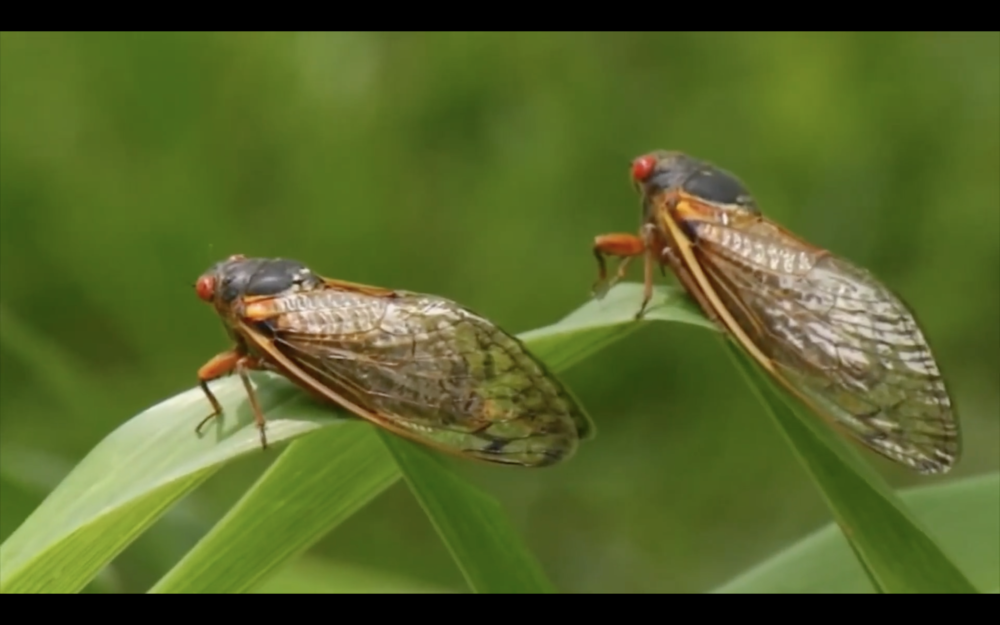
Caption
Scientists say billions of cicadas will emerge in the U.S. starting April 2024. It's a rare double brood emergence event that hasn't happened since 1803, when Thomas Jefferson was president.
Credit: Screenshot / ABC11

Scientists say billions of cicadas will emerge in the U.S. starting April 2024. It's a rare double brood emergence event that hasn't happened since 1803, when Thomas Jefferson was president.
The cicadas are coming.
Billions of them, in fact.
Although most of us aren’t that thrilled about the invasion, some call it a “once-in-a-lifetime” experience.
Here’s why: 221 years have passed since two cicada broods emerged at the same time and this event won’t happen again until 2245.
Here’s what else we know about the screaming, red-eyed critter surge:
Billions of cicadas will leave their underground homes to surface and fly across the southern U.S. this spring.
They are called periodical cicadas and they emerge every 13 to 17 years, but this particular brood or species of cicadas hasn’t been seen together since 1803.
It’s an “extremely rare, once-in-a-lifetime event,” said Floyd Shockley, an entomologist and the collections manager for the Department of Entomology at the National Museum of Natural History.
The timing of the invasion will be late April to early May and the cicadas could stick around until August or September.
Cicadas are quite the nuisance, but they are not harmful to humans, pets, gardens or homes.
In fact, according to the Environmental Protection Agency, cicadas can have some environmental benefits:
Keep in mind, cicada invasions don’t last forever and they can be managed. Here are some tips from the EPA:
Have more questions? Email at cmadden@mcclatchy.com.
This story comes to GPB through a reporting partnership with the Ledger-Enquirer.